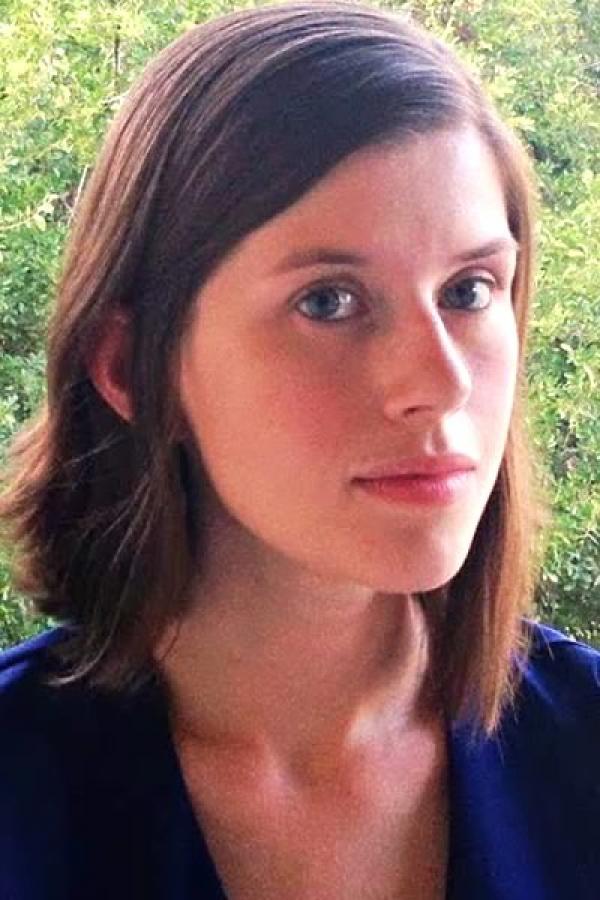Jennifer duBois

Photo by Justin Perry
Bio
Jennifer duBois is the author of A Partial History of Lost Causes, which won a California Book Award for Fiction, a Northern California Book Award for First Fiction, and was a finalist for the PEN/Hemingway Prize for Debut Fiction. The National Book Foundation named her one of its 5 Under 35 authors. Her second novel, Cartwheel, was the winner of the Housatonic Book Award for fiction and was a finalist for a New York Public Library Young Lions Award. An alumna of the Iowa Writers’ Workshop and Stanford University’s Stegner Fellowship, duBois is the recipient of a Whiting Writers’ Award. Her writing has appeared in the New York Times, the Wall Street Journal, Playboy, Lapham’s Quarterly, American Short Fiction, the Missouri Review, the Kenyon Review, Salon, Cosmopolitan, ZYZZYVA, and elsewhere. A native of western Massachusetts, duBois teaches in the MFA program at Texas State University.
I am incredibly grateful to the National Endowment for the Arts for this Creative Writing Fellowship, which will allow me to spend a year teaching only part-time. In the five years since I've been teaching full-time, I've found it intensely difficult to find time to write during the school year. Even conceiving of a novel—let alone completing one—has proved profoundly challenging; full-length book projects really aren't meant to be tackled frantically, around the margins of absolutely everything else in one's life. The NEA grant will give me a year to return writing to the center of my life—the place where it used to live, and which allowed me to complete my previous novels. I can't express what a gift this is, and how lucky I feel to have been granted this time.
Excerpt from The Spectators: A Novel
In the beginning, we came prepared. We armed ourselves with magazines and flowers. We
brought cans of V8 and candy we knew the nurses would make us throw out. Inside, we donned robes and masks and plastic caps; we walked through doors marked WARNING. We stepped over untouched plates of food the staff had left outside the doorways. They were afraid to go inside the rooms.
There is nothing new under the sun—but nothing new to whom? It’s the sun that can never be surprised again; the same cannot be said for people.
For the most part, we did not cry. We made bad jokes instead, then went ahead and made them anyway. We braced ourselves against the smell of offal; the venous arms we tried not to look at, vowed never to remember. We read aloud from paperbacks. We left earlier than we’d meant to.
Later, safe in our apartments, we read fliers from the Gay Men’s Health Crisis. We drafted care schedules—Nick organized Peter’s with trading-floor efficiency. We found ourselves making redundant copies in the middle of the night. We stood next to the copier thinking about Peter, and how little we’d ever thought of him before. We remembered how, through all the years of our raucous libidinousness toward Nick, he was never once afraid of us. We remembered that he’d been a veteran. We allowed ourselves to be comforted by this.
We sent away for vitamins advertised in the back of magazines. They cost a fortune—but an ounce of prevention, etc. etc., and that was when there was a cure. What we had instead were treatments. There was co-trimoxazale and Compound Q and pentamidine, supplied through a special arrangement with the government. There were vitamin “perfusions”—neologism-zero, perhaps, in what would become a secondary epidemic—and there were strategies and schemes, of course, for those who could afford them. We knew a man who went to Sloan-Kettering every other day. We knew a man who went on disability and lived off the interest from his trust fund. We knew Peter, who’d enrolled in studies run by two doctors who each would have disqualified him if they’d known of the other. A period of subterfuge commenced—chaotic taking of cabs, hysterical fear of discovery—all of it reminiscent, perversely, of a French farce. We laughed about this a little—with Peter before he died, and then among ourselves afterward. This was the last, best thing his money ever bought him.
In January, Peter gave up, and abruptly quit both studies. Later we heard that Nick had taken him to Switzerland to have his blood recycled. We liked to imagine Peter sitting on a mountaintop, feverish and red-cheeked and straight out of Thomas Mann, which we further liked to imagine he had read. We liked to imagine him breathing the crystalline air, we liked to imagine him laughing. We liked to imagine him eyeing the youths on the ski slopes to the very last. We liked to imagine he hadn’t yet gone blind.
(Excerpt from The Spectators: A Novel by Jennifer DuBois, copyright © 2019 by Jennifer DuBois. Used by peremission of Random House, an imprint and division of Penguin Random House LLC. All rights reserved.)

